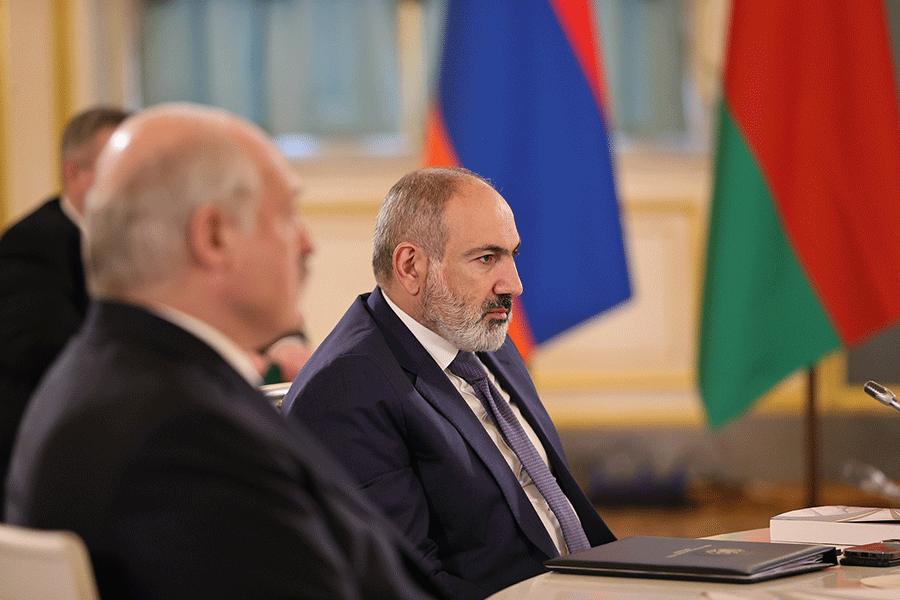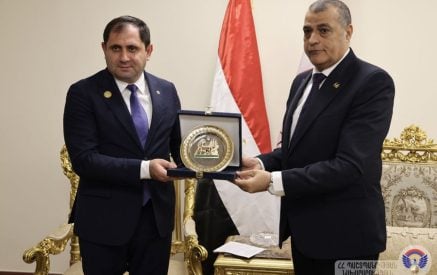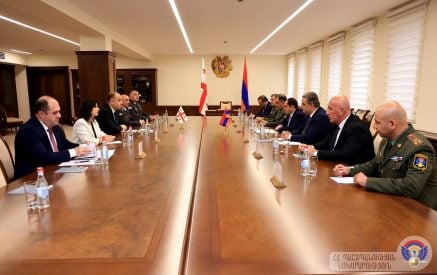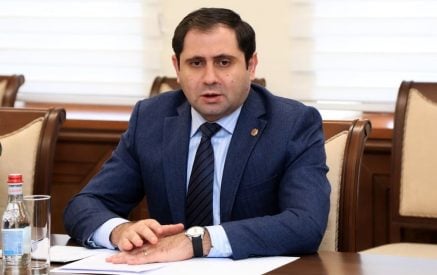By Gabriel Gavin
(Politico.eu) — Belarus delivered advanced weapons to Armenia’s arch enemy even though both countries were supposedly allies in a Russian-led international defense pact, according to leaked documents seen by POLITICO.
The cache of files sheds new light on Armenia’s decision this week to announce it will be leaving the military alliance, a dramatic turn that will weaken Russian President Vladimir Putin’s authority with former Soviet nations.
Armenia is now on the verge of making a historic tilt toward the West, increasingly looking toward Europe and NATO for protection, after decades in which the former Soviet republic relied on Moscow.
Read also
Armenia has been locked in a bitter conflict with Azerbaijan in the South Caucasus region, at the strategic junction between Asia and Europe, frequently boiling over into full-scale war.
The decision by Belarus — a staunch ally of Russia — to supply advanced military hardware to Azerbaijan between 2018 and 2022, giving it the upper hand in a spate of wars with its long-standing rival, will have been regarded as a bitter betrayal by Armenia.
Both Belarus and Armenia are members of the Collective Security Treaty Organization (CSTO), a post-Soviet military alliance led by Moscow and formed in 2002. Theoretically, members are obliged to defend each other if attacked. Azerbaijan quit a precursor to the bloc in 1999.
On Wednesday, June 12, Armenian Prime Minister Nikol Pashinyan announced his government would begin the process of withdrawing from the bloc, claiming its members were “not fulfilling their contractual obligations, but are planning a war against us with Azerbaijan.”
Now, a cache of more than a dozen letters, diplomatic notes, bills of sale and export passports seen by POLITICO shows that Belarus actively aided Azerbaijan’s armed forces between 2018 and 2022, as tensions peaked with Armenia. The services offered included modernizing older artillery equipment and providing new gear used for electronic warfare and drone systems.
The documents include letters from the Belarusian state arms export agency to its own military-industrial firms relating to orders of state-of-the-art artillery targeting equipment for Azerbaijan as well as correspondence between the two states agreeing the purchase of Groza-S counter-drone mobile warfare stations for Azerbaijan’s armed forces.
Neither the Azerbaijani nor Belarusian governments responded to requests for comment.
‘With Friends like These’
Artillery and drones were used extensively in combat between Azerbaijani and Armenian forces in recent years. This included during a 2020 war between the two sides over the breakaway region of Nagorno-Karabakh, which lies inside Azerbaijan’s internationally recognized borders but has been governed as an unrecognized state by its Armenian population since a brutal conflict that followed the fall of the Soviet Union. An Azerbaijani offensive last September ended the region’s de facto independence and sparked a mass exodus of its 100,000 inhabitants.
One of the diplomatic communications seen by POLITICO said that Belarusian enterprises were playing an active role “in the restoration of de-occupied territories of Azerbaijan, as well as the export of Belarusian goods and services” to the country.
Azerbaijani forces also launched incursions into the territory of the Republic of Armenia proper in September 2022, taking key strategic heights. Armenia called on the CSTO for support at the time, but later accused the bloc of failing to honor its commitments after it offered only to send a fact-finding delegation. Since then, Pashinyan, Armenia’s leader, has struck a deal to expand an EU monitoring mission on the tense border between the two former Soviet republics and invited U.S. troops for joint training drills.
Eduard Arakelyan, a military analyst at Yerevan’s Regional Center for Democracy and Security, verified that the leaked documents pertained to hardware used by Azerbaijan in recent wars, both in Nagorno-Karabakh and against the Republic of Armenia itself.
“This equipment was used with devastating effect against Armenian troops and was provided by a country that is supposed to be an ally of Armenia,” he said. “In formal terms, it’s a complete breach of the CSTO alliance but, in practice, we’ve always known the bloc was more supportive of Azerbaijan.”
Despite on paper being an ally of Armenia, Belarusian President Aleksandr Lukashenko has previously described Azerbaijani President Ilham Aliyev as “our man” and said it would be “wrong” for the CSTO to oppose him. Aliyev, for his part, said in 2022 that “we have more friends in the CSTO than Armenia.”
However, according to experts, Belarus — one of Moscow’s closest allies — was unlikely to be acting without the tacit support of the Kremlin itself. “This truly shows that with friends like Vladimir Putin, nobody needs enemies,” said Ivana Stradner, a research fellow at the Foundation for Defense of Democracies.
“It’s ridiculous to think these transfers could have taken place without Moscow’s knowledge, and that Russia couldn’t have stopped them if it wanted to,” she added. “There is no such thing as loyalty when it comes to Moscow — it’s all about preserving their own security even if it’s at the expense of their own allies.”
Belarus summoned Armenia’s ambassador to a meeting at the foreign ministry on Thursday, June 13, after Pashinyan aired his accusations the previous day. The envoy was later recalled to Yerevan, and Belarus’ ambassador returned to Minsk, as part of a severing of diplomatic relations between the two nations.
The Armenian Mirror-Spectator


























































